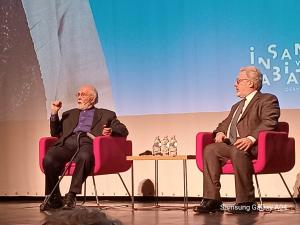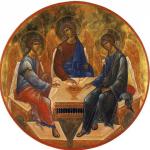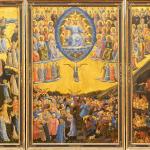
A problem found in many religious traditions lies in the way some of their members try to spread their faith through apologetics, and they end up using poor, simplistic arguments which are relatively easy to dismiss when they are critically examined. Apologetics, which can serve a good, such as when it is used to help explain various beliefs and practices from a particular faith tradition, becomes problematic when it is turned into a kind of pseudo-philosophy or pseudo-theology and apologists think arguments with others is what leads to conversion. When apologists get into debates, thinking if they win a debate, it means they have proven their case, show they do not understand the limits of debates and how people can lose debates, not because they are wrong, but because they do not have enough knowledge to prove they are correct (or they do not have sufficient time to relate that information). Apologists, who win such debates, assume too much about themselves and their arguments; they repeat claims they made in their debates as if they have proven their case, and slowly, many in their faith tradition comes to believe the same. When they encounter someone who knows better, such apologists end up making a mockery of their faith, as they are seen as representatives of their faith tradition and what they say is what all in their faith tradition believes (which of course, is usually not the case, but for outsiders, such apologists tend to be the people they encounter the most, which is why they tend to equate such apologists and their beliefs and arguments with the faith tradition itself).
A common practice for apologists is to try to show how the sacred texts of their own faith tradition reveal facts which science many centuries later would reveal to be true; they suggest that this is proof that their religious texts are divinely inspired. However, such apologists tend not to understand the history of science, and what they claim was impossible to have been known when the text was written is far from true. This is why the audience the text was written for do not show any surprise when such facts are stated in their texts, because they represented something they already knew. Similarly, science is constantly changing, developing a better understanding of the world around us; if we try to equate the science of our age with a particular scripture, we end up encouraging others to reject our scriptures when science learns new facts which leads scientists to contradict and reject old understandings of the world. Seyyed Hosein Nasr saw this as being a significant problem from within the Islamic (and Sufi) tradition, but, the reasons why he says it is troubling be something which Christians, Jews, Hindus, Buddhists, and members of other religious faiths, should see is true for their own faith tradition as well:
If the defence of Islam is to be based on a set of weak, ever-retreating apologetics whose technique is to make everything fashionable appear as Islamic, it can hardly convince the thoughtful. Moreover, such methods will make Islam appear to the intelligent observer as a second-rate Western ideology. If Islam is presented, for example, as socialism or rationalism, then the thoughtful modern man who stands outside of the world of faith will seek the purer form of socialism and rationalism in the Western philosophies and ideologies themselves, rather than in their Islamic imitation.[1]
Thus, for Christians, Christianity should not be seen merely as a form of capitalism, socialism, rationalism, philosophy, or the like, for, when it is seen to be one of those things, then people will question the need for the religious and mythic elements, cast them aside, and take on the secular form with ease. Of course, we must not deny the way religions can connect themselves to elements of various scientific or philosophical or economic positions, because truth should not contradict truth, but it is important for us to understand the distinctions. Religious adherents can learn from secular, non-religious sources, even those which are seen often in contention with religion itself, but they must do so in a way that they take what is good from those positions and adapts them to fit to the greater, transcendent truth revealed in their religious faith. When this is done, it must not be done merely to make religion popular, but to help religion do what it seeks to do, to apprehend and learn from the greater truth. Thus, Nasr further wrote:
One cannot harmonize the Quran and science simply by equating such and such a verse of the Quran with a particular scientific discovery which moreover soon will become outmoded. The Quran does not provide a detailed science of things but the principles of all knowledge. [2]
Christians, likewise, must not try to do this. Sadly, when many Christians agree with this assessment, they do so for the wrong reason: they reject what science teaches; others, of course, do accept what science teaches and understand the limitations of apologetics, however, their work usually ends up far less popular, as it is far less sensational, and so far less influential upon those who should listen to them. Christians (and believers in other religious traditions) should accept that their sacred texts are not scientific texts; looking for scientific knowledge from them misses the point. Their sacred texts are meant to teach transcendent truths, truths which should shape their world view, giving them a hermeneutic to coordinate what they learn throughout their lives, including what they learn from the sciences. So long as we engage a fundamental interpretative error with our texts, trying to make them into something they are not, seeking science out of books which are not scientific, non-Christians will easily find examples in our scriptures where science shows what is said to have happened could not have happened as described. One that happens, they can easily dismiss our religious scriptures, and with it, our faith. Christians need to realize that our texts, and the truths in them, should be open to what is learned from the sciences, and not be treated as rivals to science, recognizing the different domains which are being engaged by religion and science. Al-Ghazālī’s warning should always be kept in mind:
The greatest thing in which the atheists rejoice is for the defender of religion to declare that these [astronomical demonstrations] and their like are contrary to religion. Thus, the [atheist’s] path for refuting religion becomes easy if the likes [of the above argument for defending religion] are rendered a condition [for its truth]. [3]
Apologists often act like they are saving their religion by their arguments, and if they are not heeded, their religious will likely lose a great number of its adherents if not end up being destroyed. If that is the case, one can wonder, is their religious faith worth saving? For, as Marsilio Ficino pointed out, we should understand it is God, not us, and no one else, who protects, and preserves the place of religion in the world: “This religion, therefore, which has God as its champion and defender, can never be destroyed, even if it should be poorly practised by its own and cruelly assailed by its foes.” [4] To be sure, there is room for apologetics, as there is room for theology, but it must be understood what the role should be: it should be used to help explain what people do not understand of a particular faith instead of being seen as an enterprise in which people can and will prove the absolute truth of their faith to others. Apologetics should humble, following J.R.R. Tolkien in his letter to Camilla Unwin by offering simple, little answers, knowing that the greater answers lies beyond us and is found in and with God alone:
But these are only answers to the smaller question. To the larger there is no answer, because that requires a complete knowledge of God, which is unattainable. If we ask why God included us in his Design, we can really say no more than because He Did.[5]
[1] Seyyed Hosein Nasr, Sufi Essays (Albany, NY: State University of New York Press, 1972), 52 [Revelation, Intellect and Reason in the Quran].
[2] Seyyed Hosein Nasr, Sufi Essays, 56 [Revelation, Intellect and Reason in the Quran].
[3] Al-Ghazālī, The Incoherence of the Philosophers. Trans. Michael E. Marmura (Provo, Utah: Brigham Young University Press, 2000), 7.
[4] Marsilio Ficino, On the Christian Religion. Trans. Dan Attrell, Brett Bartlett, and David Porreca (Toronto: University of Toronto Press, 2022), 74.
[5] J.R.R. Tolkien, The Letters of J.R.R. Tolkien. Revised and Expanded Edition. Ed. Humphrey Carpenter and Christopher Tolkien (Broadway, NY: William Morrow, 2023), 561 [Letter 310 to Camilla Unwin].
Stay in touch! Like A Little Bit of Nothing on Facebook.
If you liked what you read, please consider sharing it with your friends and family!
N.B.: While I read comments to moderate them, I rarely respond to them. If I don’t respond to your comment directly, don’t assume I am unthankful for it. I appreciate it. But I want readers to feel free to ask questions, and hopefully, dialogue with each other. I have shared what I wanted to say, though some responses will get a brief reply by me, or, if I find it interesting and something I can engage fully, as the foundation for another post. I have had many posts inspired or improved upon thanks to my readers.













